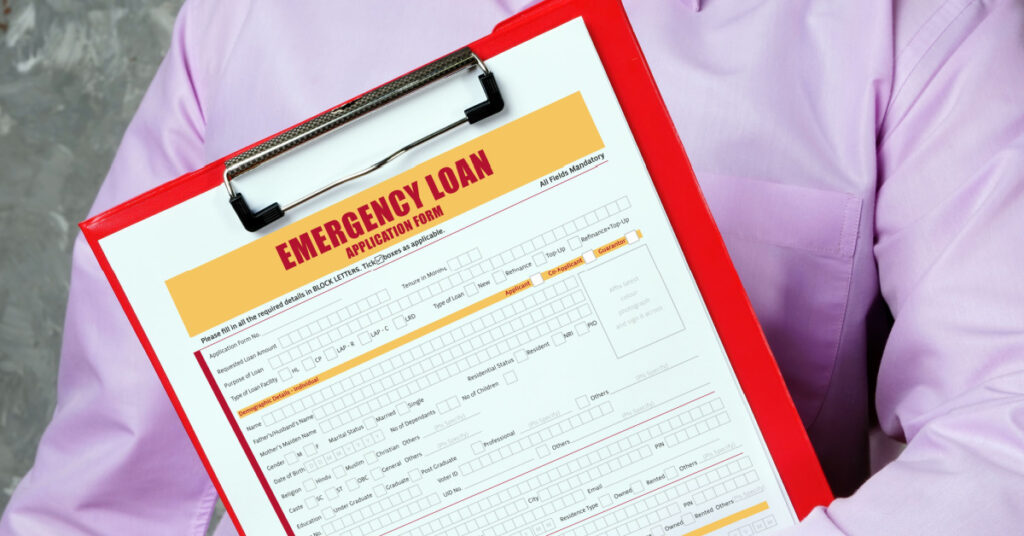Financial emergencies happen. This could be anything from a high medical bill to sudden unemployment. Times like these can be extremely stressful, but they don’t have to turn your entire life upside down.
Emergency loans can help in a pinch. When used the right way, they can even help prevent bigger financial problems from occurring.
Table of Contents
14 Top Emergency Loans That Aren’t Payday Loans
There are dozens of emergency loans out there, most of which are unsecured personal loans. Since they’re urgent, the interest rate may still be higher than other personal loans. However, these loans usually come with more reasonable terms and interest rates than predatory payday loans.
Some of these lenders will even work with borrowers with less-than-stellar credit. In many cases, funds are available the same day an application is completed or within a couple of business days. The loan proceeds are typically deposited directly into the borrower’s bank account.
Disclaimer: Credit Summit may be affiliated with some of the companies mentioned in this article. Credit Summit may make money from advertisements or when you contact a company through our platform.

Alliant Credit Union
Alliant Credit Union offers emergency loans to established members; that is, anyone who’s been an active member for at least 90 days before applying.
- Minimum loan amount: $1,000 to $50,000
- APR range: 10.49% to 12.49% (depending on loan term)
- Loan terms: 12 to 60 months
- Minimum credit score: 630
- Prepayment penalty: None
- How long until loan funds: Same-day funding if approved that day
- Origination fee: None
- Eligibility criteria: Must be a current Aliant Credit Union member with verifiable income. No prequalification option is available.
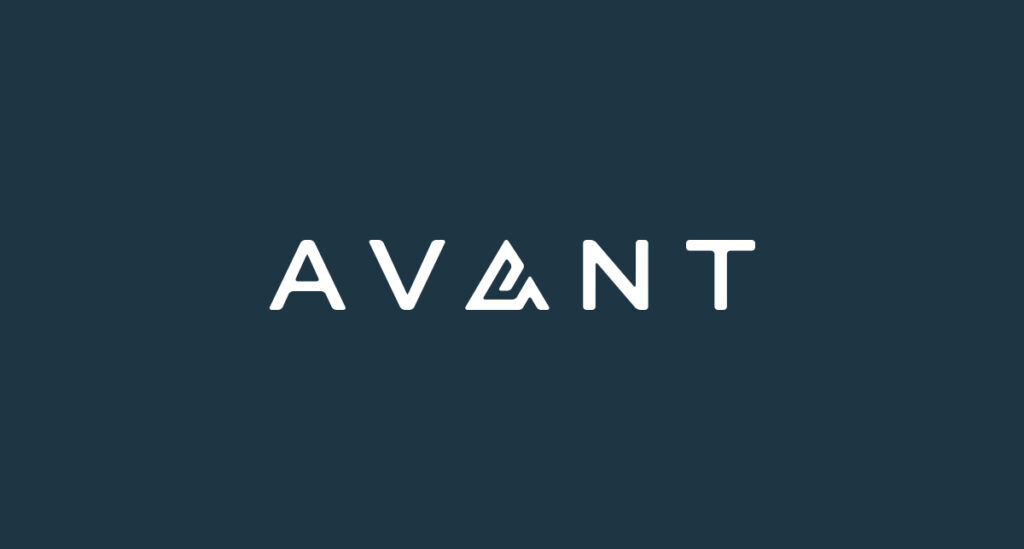
Avant
Avant is a financial technology company that partners with FDIC-insured banks to provide loans, credit cards and mobile banking services.
- Minimum loan amount: $2,000 to $35,000 (minimums vary by state)
- APR range: 9.95% to 35.95%
- Loan terms: 12 to 60 months
- Minimum credit score: 550
- Prepayment penalty: None
- How long until loan funds: Next business day after application approval
- Origination fee: Varies by loan type and amount
- Eligibility criteria: Borrowers must have a maximum debt-to-income (DTI) ratio of 70% and make at least $1,200 a month. There’s a prequalification option.

BadCreditLoans.com
Bad Credit Loans is an online lending platform offering unsecured personal loans to borrowers with poor or fair credit.
- Minimum loan amount: $500 to $10,000
- APR range: 5.99 to 35.99%
- Loan terms: 3 to 72 months
- Minimum credit score: Any, but borrowers with a 500 or lower credit score may only be eligible for loans up to $1,000
- Prepayment penalty: Based on lender
- How long until loan funds: One business day
- Origination fee: Based on lender (filling out the initial application is free)
- Eligibility criteria: Applicants must be a US citizen and at least 18 years old. They must also receive regular income and have an active bank account.
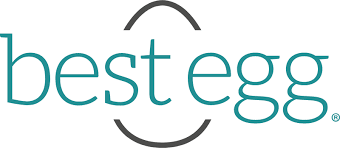
BestEgg
Best Egg offers personal loans for nearly any occasion, including emergencies.
- Minimum loan amount: $2,000 to $50,000 (minimums depend on state)
- APR range: 7.99% to 35.99%
- Loan terms: 36 to 60 months
- Minimum credit score: 600
- Prepayment penalty: None
- How long until loan funds: 1 to 3 business days
- Origination fee: 0.99% to 8.99%
- Eligibility criteria: Borrowers must have a DTI no higher than 60% (with mortgage) or 40% (without mortgage). They must also have a valid US address and SSN. Prequalification is available.
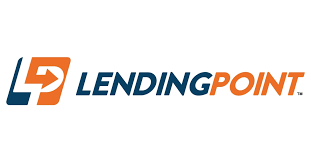
LendingPoint
LendingPoint offers emergency loans based on diverse criteria, not just credit score, to help borrowers out.
- Minimum loan amount: $2,000 to $36,500 (depending on state)
- APR range: 7.99% to 35.99%
- Loan terms: 24 to 72 months
- Minimum credit score: 600
- Prepayment penalty: None
- How long until loan funds: Next business day
- Origination fee: 0% to 7% (depending on state)
- Eligibility criteria: Borrowers must have a valid bank account, government ID and annual income of at least $35,000. West Virginia and Nevada residents are not eligible. There’s a prequalification option.
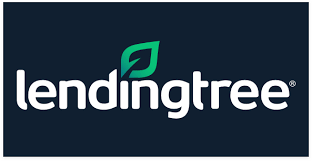
LendingTree
LendingTree is not a direct lender, but rather a platform that connects borrowers with lenders.
- Minimum loan amount: $1,000 to $50,000
- APR range: Starting at 3.99%
- Loan terms: Based on lender
- Minimum credit score: 670
- Prepayment penalty: Depends on lender
- How long until loan funds: Same-day funds available
- Origination fee: Undisclosed
- Eligibility criteria: Applicants must have verifiable income, a bank account and a low DTI (recommended: 40% maximum).

Lightstream
LightStream is an online lender offering loans for emergencies, home improvements, auto refinancing and more.
- Minimum loan amount: $5,000 to $100,000
- APR range: 3.99% to 19.99%
- Loan terms: 24 to 144 months (depending on loan type)
- Minimum credit score: 670
- Prepayment penalty: None
- How long until loan funds: Same-day funding if the application is approved by 2:30 PM EST on a business day
- Origination fee: None
- Eligibility criteria: Applicants must have good credit, consistent income and low DTI. They may also need several years or credit history. No prequalification available.

Low Credit Finance
Low Credit Finance is a lending platform that partners with direct lenders to offer small loans for emergencies.
- Minimum loan amount: $100 to $5,000
- APR range: 5.99% to 35.99%
- Loan terms: 61 days to 84 months
- Minimum credit score: 580
- Prepayment penalty: Undisclosed
- How long until loan funds: Within 1 business day
- Origination fee: Undisclosed
- Eligibility criteria: Eligibility depends on the lender, but most borrowers should have a maximum DTI of 60% and a minimum credit score of 600.

Navy Federal Credit Union
Navy Federal Credit Union offers home improvement and personal loans to current members.
- Minimum loan amount: $250 to $50,000
- APR range: 7.49% to 18.00%
- Loan terms: 12 to 60 months
- Minimum credit score: None
- Prepayment penalty: None
- How long until loan funds: Same-day funding or within 24 hours available
- Origination fee: None
- Eligibility criteria: Applicants must be on active duty, a veteran, military contractor or retired. Or they must be related to a military service member. Joint applications are accepted for those with poor credit or low income.
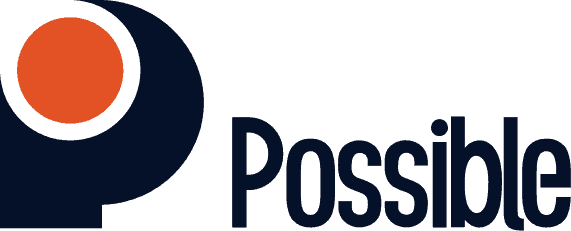
Possible Loans
Possible offers a no-credit-check alternative to payday loans, though the rates are higher than most personal loans.
- Minimum loan amount: $50 to $500
- APR range: 54.51% to 240.52%
- Loan terms: 8 weeks (maximum)
- Minimum credit score: None
- Prepayment penalty: None
- How long until loan funds: Immediate
- Origination fee: 2%
- Eligibility criteria: Borrowers need a minimum monthly income of $750, a smartphone to install the app, a bank account and a government ID. Their bank account balance should be consistently positive with regular deposits.
Prosper
Prosper operates as a peer-to-peer platform where individual investors can set their rates and lend to borrowers.
- Minimum loan amount: $2,000 to $50,000
- APR range: 6.99% to 35.99%
- Loan terms: 36 or 60 months
- Minimum credit score: 600
- Prepayment penalty: None
- How long until loan funds: Within one business day
- Origination fee: 1% to 5% (included in the APR)
- Eligibility criteria: Borrowers must have 2 years of credit history and a maximum DTI of 50% (excluding mortgage). They cannot have any recent bankruptcies. They should also have at least three active accounts (lines of credit, loans, etc.). Income requirements depend on the loan amount and lender.

RocketLoans
RocketLoans is an online lender offering personal loans with fast funding.
- Minimum loan amount: $2,000 to $45,000
- APR range: 7.727% to 29.99%
- Loan terms: 36 or 60 months
- Minimum credit score: 640
- Prepayment penalty: None
- How long until loan funds: Same-day funding
- Origination fee: 1% to 6%
- Eligibility criteria: Applicants need to be 18+ years old and a US resident. They need a minimum annual income of $24,000 and a maximum DTI of 40% (excluding mortgage). They should also have at least two years of credit history.
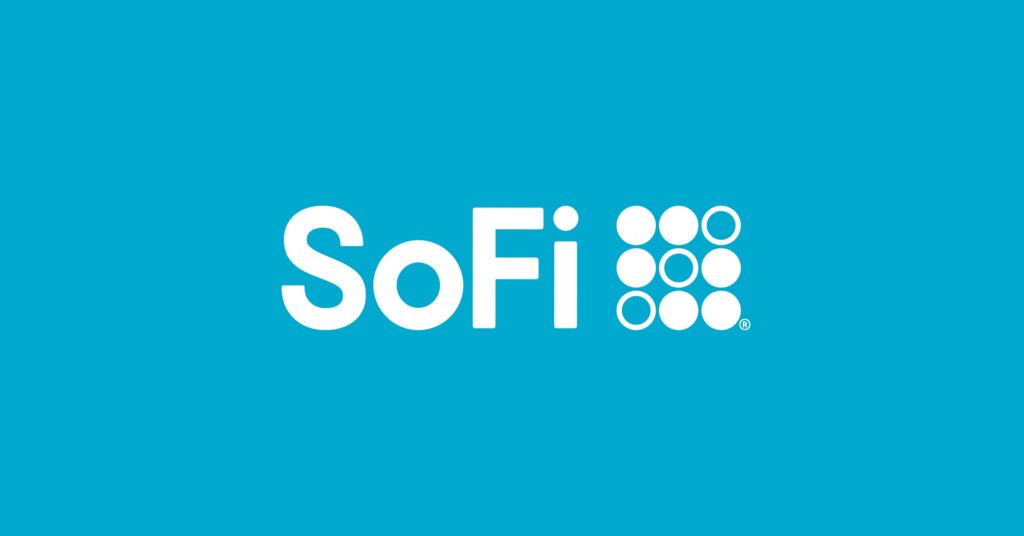
SoFi
SoFi has personal loans with fast funding and competitive rates for anything from home improvements to debt consolidation to emergencies.
- Minimum loan amount: $5,000 to $100,000
- APR range: 7.99% to 23.43%
- Loan terms: 24 to 84 months
- Minimum credit score: 680
- Prepayment penalty: None
- How long until loan funds: Same-day funding
- Origination fee: None
- Eligibility criteria: Borrowers must be US citizens and be employed or have an existing job offer with a start date within 90 days of application.

Upstart
Upstart offers simple loans for debt consolidation, auto refinancing and more.
- Minimum loan amount: $1,000 to $50,000
- APR range: 5.60% – 35.99%
- Loan terms: 36 to 60 months
- Minimum credit score: 600
- Prepayment penalty: None
- How long until loan funds: Next business day
- Origination fee: 1.85% to 8.00% (taken from the borrowed amount)
- Eligibility criteria: Eligibility and loan amounts depend on credit score, income and DTI. The borrower must be 18+ years old and a US citizen with a valid SSN.
What You Need to Know About Emergency Loans
Nearly 20% of Americans don’t have money in savings. This means they’re unprepared for when a sudden or unexpected expense comes up. Emergency loans can help cover these costs.
Most people use these loans for things like:
- Home or car repairs
- Medical bills
- Funeral expenses
- Lost job
Lenders offering these loans understand the situation’s urgency and usually offer quick approval and same-day or next-day funding.
Eligibility requirements and terms vary widely. Some lenders will work with borrowers with poor credit and low income. Others require good credit, robust credit history and high income.
Pros and Cons
As with any loan, emergency loans have their fair share of pros and cons.
Pros
- Quick and easy application process (often done entirely online)
- Funds are often quickly available, sometimes within one business day
- Eligibility requirements vary, meaning even those with poor credit may qualify
- Many lenders offer prequalification and a soft credit check, which doesn’t affect the applicant’s credit score
- Minimum loan amounts are higher than payday loans
- Loan terms are longer than payday loans, making them easier to manage
- Interest rates are generally more competitive than other short-term options
Cons
- APR is usually higher than traditional installment loans or personal loans with higher eligibility requirements
- Some come with prepayment penalties, origination fees or late fees
- In some cases, late payments may lead to higher interest rates
- Taking out a loan adds to your credit utilization, which could affect your credit
What to Look For
Not all emergency loans are created equal. Before applying for one, do your research and see what different lenders offer. If there’s a prequalification tool, use it to see what you could get without affecting your credit.
Here are the main things to focus on:
- Time to funding
- Lowest interest rate possible
- Repayment term length and flexibility
- Minimum credit score requirement (if you have bad credit)
- Estimated monthly payment
- Fixed or variable rates
- Interest rates and ranges
- Annual percentage rates (APR)
- Penalties and fees (for example, origination or prepayment fees)
- Online reviews from previous or current customers
- Eligibility requirements (for example, most credit unions only work with active or established members)
How to Get Approved for an Emergency Loan
Approval for an emergency loan isn’t much different from any other type of loan. Here are the five basic steps to make sure you get the best approval odds:
- Research lenders. See what they offer and how they compare. Check their eligibility requirements. If you think you’ll have trouble qualifying, move on to the next option.
- Get prequalified. Many lenders offer prequalification, which means they run a soft credit check. This won’t hurt your credit score, but it will give you an idea of whether you qualify.
- Complete the online application. This typically requires a hard credit check, which could temporarily hurt your credit score. Make sure you have any required information or documentation. This includes things like government ID, bank account information, pay stubs and debt information.
- Wait for approval. This could be immediate or within a few hours, or it could take several business days.
- Receive the funds. The money should be deposited directly into your checking or savings account.
If You Have Bad Credit
Bad credit doesn’t automatically disqualify you from taking out an emergency loan. However, the lower your credit score, the higher the interest rate will be.
If you have poor or fair credit, consider applying with a family member or friend. If that isn’t an option, look for a lender that doesn’t use credit history as the main eligibility factor. Some lenders will take a more comprehensive look that includes the applicant’s credit history, income and other factors.
Other Types of Emergency Loan Options with No Credit Check
Here are the main types of emergency loans that don’t require a credit check:
- Cash advance: Cash advance apps offer small loans (usually no more than $500). They don’t charge interest or other fees. Most are free, though some have an optional “tip” for the service. Dave and Albert are good options to consider.
- Payday alternative loan: Payday alternative loans, or PALs, are short-term loans available to some credit union members. Amounts range from $200 to $2,000 with 1 to 12-month terms. Unlike traditional payday loans, it’s not possible to roll over a PAL into a new loan, so there’s no debt trap.
- Payday loans: There are around 23,000 payday lenders in the US, though they’re prohibited in some states. These no-credit-check loans have short repayment terms and are expensive – the average APR is nearly 400%. The sky-high interest rates can trap borrowers in a cycle of debt, which is why payday loans should be used as a last resort.
- Title loans: These short-term loans use your vehicle as collateral. If you fail to repay the loan, the vehicle could be repossessed.
- Credit card cash advance: This is probably the fastest way to get funds for those with a credit card. A credit card cash advance will start accruing interest immediately, though at a lower rate than a payday or title loan.
Why You Need to Stay Away from Payday Loans and Title Loans
Payday loans and title loans can give you fast cash, but they are highly risky. They’re short-term loans with short repayment terms and high interest rates. In the case of a title loan, defaulting on the loan could also cause you to lose your car.
And then there are tribal lenders. These are the worst of the bunch because they can sidestep state laws and interest rate caps.
All of these types of loans can also trap you in a cycle of debt that can take months or years to escape. Unless there is truly no other option, stay away from these loans.
Other Alternatives
If you have some time before you need funding, here are a few other options to consider:
- Home equity loan or home equity line of credit (HELOC) — both use the equity in your home as collateral
- Borrow money from friends or family
- Peer-to-peer lending through a platform like Upstart or Peerform
READ MORE: Here are the 5 best peer-to-peer loans for bad credit borrowers
When Your Financial Crisis Has Passed
Once you’ve dealt with your financial emergency, here are some ways to prevent a similar issue from occurring again:
- Start an emergency fund in a separate savings account. Only use it if there’s a real emergency.
- Sign up for a service like Acorns that rounds up your purchases and invests them on your behalf.
- Establish a personal budget and cut back on unnecessary spending.
- Take on an extra shift or two at work for some extra cushioning.
- Start a side gig like ridesharing or selling crafts online.
- Sell items that are in good condition that you no longer need or use. Check out sites like OfferUp, Mercari, eBay and Facebook Marketplace.
The Bottom Line
Emergency loans can be used to help cover a sudden or unexpected emergency expense. They’re usually better than other short-term options like payday loans. However, they may still have higher interest rates than other personal loans.
Only take out a loan if it’s absolutely necessary. Make sure you can make payments on time so the loan doesn’t hurt your finances or credit.
FAQs
Debt-to-income ratio (DTI) is a percentage that lets lenders know how much you’re making vs. how much you’re spending each month. To figure it out, add up all monthly debt payments and divide them by your monthly gross income. Say, for example, your monthly gross income is $2,000 and your monthly debt adds up to $1,200. Your DTI is 60%. Most lenders prefer to work with borrowers with a maximum DTI of 40% to 60%.
Bright Lending is a tribal lender that charges extremely high interest rates and fees. The standard APR ranges from 500% to 725%. The lender also has poor reviews on BBB.
Most lenders require you to have an active checking or savings account. This is so that they can better understand your financial situation and deposit funds after approval. If you don’t have a bank account, your options are more limited (ex., payday loans or title loans).

